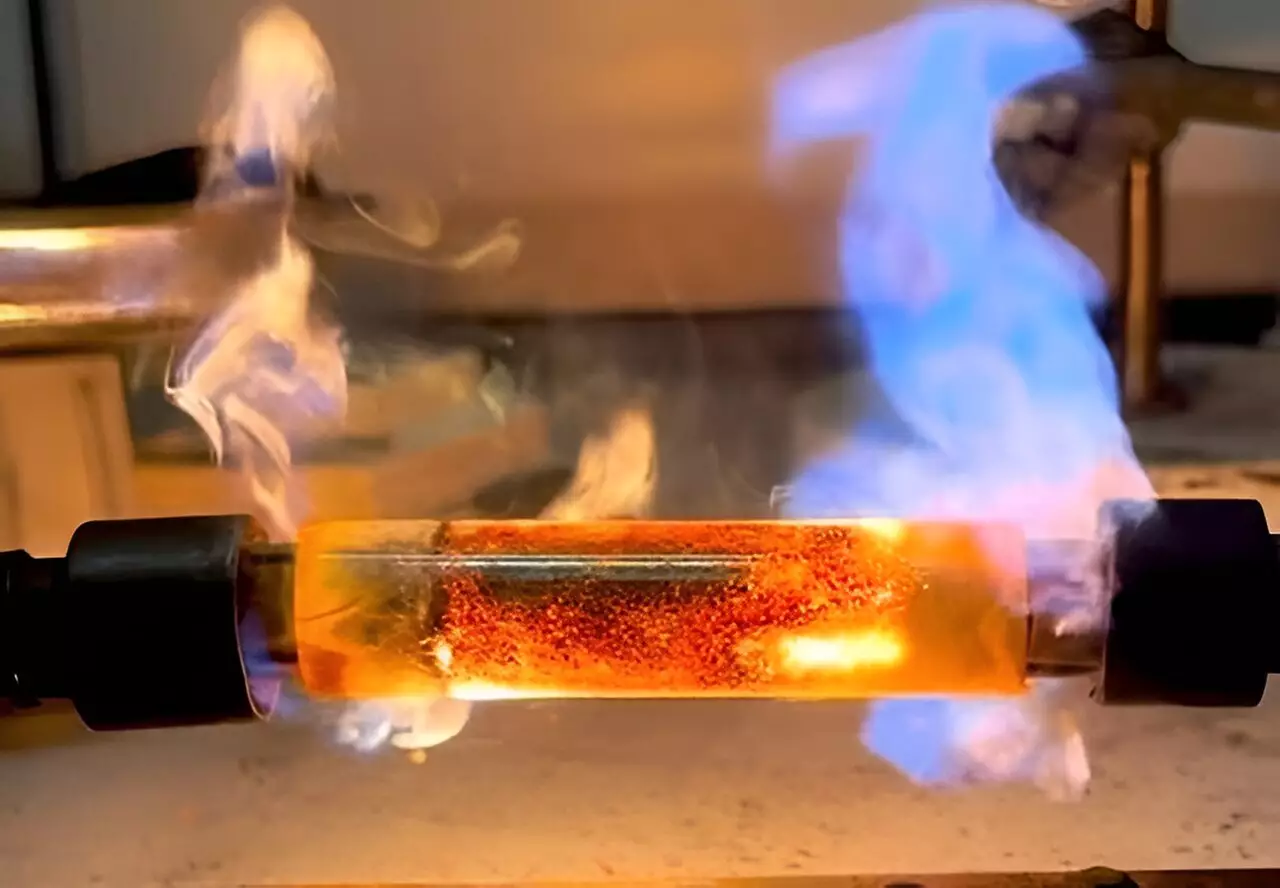James Tour’s lab at Rice University has recently unveiled a groundbreaking method called flash-within-flash Joule heating (FWF) that has the potential to revolutionize the synthesis of high-quality solid-state materials. This innovative approach, detailed in a publication in Nature Chemistry on August 8, offers a cleaner, faster, and more sustainable manufacturing process compared to traditional methods. Historically, the synthesis of solid-state materials has been a laborious and energy-intensive process, often resulting in the generation of harmful byproducts. However, with FWF, it is now possible to produce gram-scale quantities of diverse compounds in a matter of seconds, while also reducing energy consumption, water usage, and greenhouse gas emissions by more than 50%.
The success of FWF lies in its ability to circumvent the conductivity constraints that have plagued traditional flash Joule heating techniques. James Tour’s team, which includes Ph.D. student Chi Hun “Will” Choi and corresponding author Yimo Han, assistant professor of chemistry, materials science, and nanoengineering, devised a method that involves an outer flash heating vessel filled with metallurgical coke and an inner reactor containing the reagents. By generating intense heat of approximately 2,000 degrees Celsius, FWF efficiently transforms these reagents into high-quality materials through heat conduction. This novel approach has enabled the synthesis of more than 20 unique, phase-selective materials with exceptional purity and consistency.
One of the key advantages of FWF is its versatility and scalability, making it particularly well-suited for the production of next-generation semiconductor materials like molybdenum diselenide (MoSe2), tungsten diselenide, and alpha phase indium selenide. These materials are notoriously challenging to synthesize using conventional methods, making FWF a game-changer in the field of material science. By eliminating the need for additional conductive agents, FWF also reduces the formation of impurities and byproducts, opening up new possibilities in electronics, catalysis, energy research, and beyond. This advancement not only presents a sustainable solution for manufacturing a wide range of materials but also has the potential to transform industries such as aerospace, where FWF-made MoSe2 has shown superior performance as a solid-state lubricant.
According to Tour and his team, FWF represents a transformative shift in the way materials are synthesized. By expanding the scope of flash synthesis beyond carbon and a select few compounds, FWF opens up possibilities for the rapid and efficient synthesis of a wide range of materials across the periodic table. This marks a significant advancement in the field of material science and has the potential to drive innovation in various industries. With its ability to produce high-quality materials at scale while minimizing environmental impact, FWF has the power to shape the future of material synthesis and offer new avenues for scientific exploration and technological advancement.


Leave a Reply